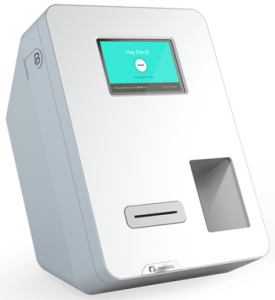Over the past year, bitcoin (BTC) ATMs have started to become ubiquitous all over the world. Entrepreneurs interested in the cryptocurrency industry have already launched such machines in Vancouver, Hong Kong and San Diego with more being planned in other major metropolitan cities.
This week, it has become a lot easier to transfer cash into digital coins in Toronto because the city now maintains a bitcoin ATM. Located in the heart of Toronto at King and Spadina, the bitcoin ATM has been installed at Bitcoin Decentral and works like any other machine before it: insert cash and it will give customers a quote for how many bitcoins can be purchased.

Anthony Di Iorio, executive director of the Bitcoin Alliance of Canada, who will receive a commission for each transaction, told the Toronto Star that he believes it will be quite successful because Toronto is a booming bitcoin community and the other Canadian ATM has experienced a wave of success.
Various Toronto merchants have already made local headlines for announcing that they are accepting bitcoins as a method of payment, such as Ark Army Surplus and hqvb, an advertising agency.
At an unspecified date, New York City will get its very own bitcoin ATM too. The operator of the machine, Willard Ling, is currently in talks with the East Village bubble tea shop Just Sweet over terms of a rent deal.
The New York Post published a profile of the machine Monday, which was manufactured by Lamassau. Experts have likened the ATM to a “typical deli ATM” and the vending machine will operate like this: users download a bitcoin wallet mobile app and create a password. A black and white QR code appears, which then requires the customer to press their phone against the glass window to scan the code. Insert cash and bitcoins are dispensed onto the phone.
Sounds fantastic for bitcoiners in New York, right? Well, there might be a little difficulty because later this month state regulators from the city’s Department of Financial Services (NYDFS) will be holding hearing and public meetings to talk about the digital currency and establish ways it can be regulated.
“We believe that—for a number of reasons—putting in place appropriate regulatory safeguards for virtual currencies will be beneficial to the long-term strength of the virtual-currency industry,” department superintendent Benjamin Lewsky stated in a memo this past summer. “If virtual currencies remain a virtual Wild West for narcotraffickers and other criminals, that would not only threaten our country’s national security, but also the very existence of the virtual currency industry as a legitimate business enterprise.”
The current proposal is for a so-called BitLicense, a licensing requirement for all businesses that deal with bitcoin and other digital currencies. Due to the immense red tape over virtual currencies in the Big Apple, Ling’s bitcoin ATM will be sitting in his apartment collecting dust.




